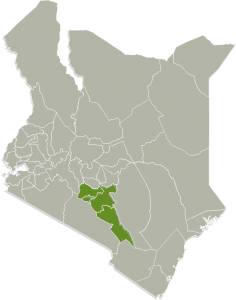| CATEGORY: | Research |
| CSA PROJECT: | Program for Climate Smart Livestock Systems (PCSL) |
| SCALE: | Community coordination actions |
| LOCATION (COUNTY): | Kajiado, Nandi and Bomet |
| PERIOD OF THE PROJECT: | 2019 – 2022 |
| GRANT SIZE OF THE PROJECT: | US$7 million |
International Livestock Research Institute (ILRI)

Summary of Actions
The PCSL project is implemented in Ethiopia, Kenya and Uganda by a multi-disciplinary team of researchers from ILRI and has three main areas of activities: dissemination of interventions for climate smart livestock systems: this includes
i) setting up greenhouses gas (GHGs) emissions baselines and performance indicators for adaptation interventions, the identification, prioritization and testing of Climate Smart Livestock Development practices, and training-of-trainers and integration of training services.
ii) Integration of climate change mitigation and adaptation in livestock-related policies: this includes the establishment of multi-stakeholder working groups, creation of livestock development pathways, and the consolidation and promotion of lessons learnt and good practices for policy and investments.
iii) Improving the capacities of stakeholders to report on national contributions to the UNFCCC: including on Measurement, Verification and Reporting (MRV)systems and tracking progress on climate change commitments, and the development of mitigation and adaptation monitoring protocols for the livestock sector
Context
The field sites were selected across the three countries to account for the diversity of livestock production systems present in the region. In Kenya, the Kajiado site represents a pastoral setting while the Nandi and Bomet counties account for an intensive mixed-crop livestock system. The main climatic challenge facing the agricultural sector in is drought. The frequency and severity of droughts in the county have resulted in crop failure and livestock losses and triggered severe food shortages in the past. This projects objective is to increase agricultural productivity and build resilience to climate change risks in targeted pastoral communities in Kenya.
Objective
PCSL will support interventions to increase the contribution of livestock production to the three key pillars of CSA – increased productivity, mitigation of GHG emissions and adaptation to climate change. It will support governments, the private sector, and local stakeholders in realizing their development objectives while also fulfilling their commitments to achieve climate change adaptation and mitigation goals.
Key Interventions
| FARM LEVEL | TARGET (NO OF FARMERS) | INDICATORS MONITORED |
| Climate smart livestock practices |
Livestock keepers | Livestock keepers trained on climate smart livestock systems. |
| BEYOND FARM LEVEL | TARGET BENEFICIARIES | INDICATORS MONITORED |
| Gender (Youth and Women inclusion in CSA) |
Women in the locations PCSL is active in. |
-At least one third of participants to the trainings are women. |
Participation In Key Climate & Agriculture Networks
PCSL is a member of CGIAR research program on Climate Change, Agriculture and Food Security (CCAFS).
and the Kenya Climate Smart Agriculture Multi stakeholder Platform.
Involvement in CSA
Relevance of CSA MSP to Work
- Research
- Policy formulation
- Knowledge dissemination
- Technology transfer
- Coordination and networking
- Networking
- Reporting and showcasing
- Knowledge dissemination
- Influence policy environment
Recommendation On Ways To Support MSP
- Developing specific climate smart agriculture policies, legislations, strategies, plans
- Dissemination of climate smart agriculture knowledge and technologies
- Developing capacities of key actors involved in climate smart agriculture implementation
- Mobilizing actors and facilitating dialogue on climate smart agriculture issues/actionsConduct research to provide scientific evidence (related to livestock and also GHGs)
Lessons Learned and Challenges in Implementation of CSA Project
PCSL being in its first year of implementation, concrete lessons learnt and challenges from implementation are still being collected. In general, we have found that there is a lack of awareness of livestock’s potential contribution to productivity, food security and GHG emissions reductions, lack of inclusion of livestock in climate and crop policies and lack of accurate data for targeting.
Relevant Links & References
https://www.ilri.org/programme-for-climate-smart-livestock-systemshttps://cgspace.cgiar.org/handle/10568/101262
Organisation Information and Contact Address incase of Follow Up
Name: LAURA CRAMER
Email address: L.Cramer@cgiar.org
Organisational Physical address:International Livestock Research Institute, Naivasha Road, Nairobi Kenya
Organisational Website: https://www.ilri.org/programme-for-climate-smart-livestock-systems
